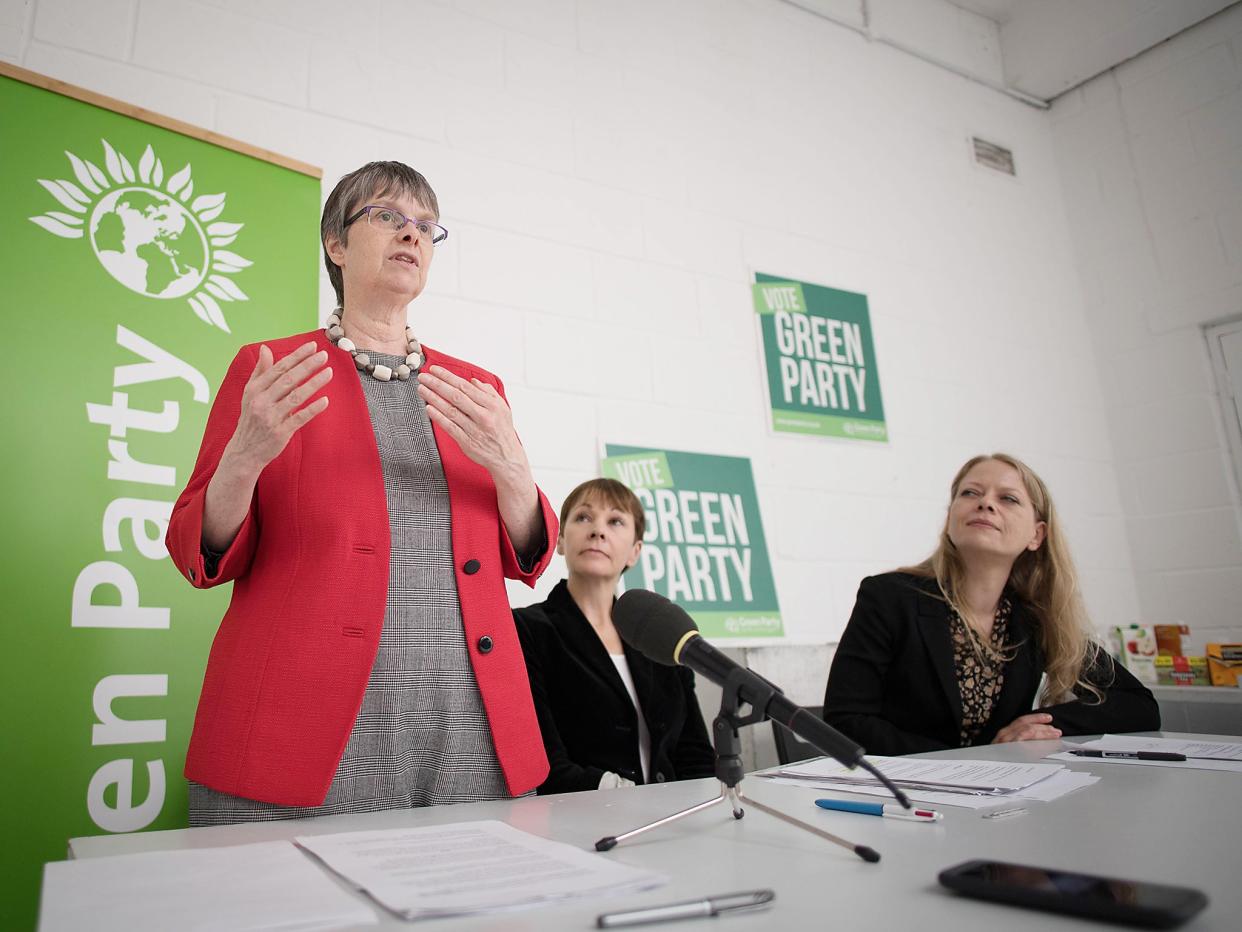If you really want to help fight climate change, don't vote Green

Stroud constituency is a key battleground in Thursday’s election. Labour MP David Drew took the seat with just 687 votes in 2017 and is facing competition from the Conservative candidate Siobhan Baillie. The constituency sits on the fringes of the Cotswolds but at the core of Britain’s environmental movement: it’s the home of Extinction Rebellion, a thriving permaculture community, and the world’s first vegan football club.
It’s no surprise then that the Greens have thrown everything behind taking the seat. The problem? They sit on just 7% of the vote in recent modelling by YouGov that takes data seat by seat, with Drew on 43% – losing to the Tories by just 4%.
To “win” the seat, the Greens are on the attack. They have fielded a strong candidate in Molly Scott Cato, the first Green MEP for the South West and locally respected across partisan lines. Rather than unite against Baillie to deter the climate nightmare of a Tory majority, the Greens have spent most of their time trying to convince voters that they, not Labour, are the only sensible vote for those concerned about the planet.
In an election that has hinged on truth, the Green Party have not come away guilt-free. Dodgy leaflets have been put through doors that claim Scott Cato can “unite the Remain vote” and win Stroud on the backs of the European election results. Similar tactics seem to be repeated nationally, with questionable literature distributed in Bristol West and Brighton Kemptown. The Greens risk playing party politics with our environment, putting point-scoring before planet.
The IPCC report shows there is little time left. We have 10 years to keep global warming to 1.5°C. That’s just two parliaments. The country is facing five years of a Conservative majority government whose climate policies are criminally negligent and whose continued support for North Sea oil alone undermines any other anaemic manifesto promises.
Labour are the only party capable of implementing a radical agenda in government. At this critical juncture, they can match and deliver the Greens’ two ambitions of a second referendum and a Green New Deal. The party has plans to rapidly de-carbonise through a national overhaul of our energy system, 1 million green jobs to ensure a just transition, fighting for an international law of ecocide and a grassroots restoration of the natural world.
Many Greens are proud of their influence on Labour’s environmental awakening, so why not reap the rewards of a Labour government?
Whether it’s this election or the next, it will be one of the major parties who can enact fundamental change and, critically, Labour have shown themselves to be a force that is amenable to popular pressure. Labour for a Green New Deal, a grassroots campaign, has spent the last year fighting to scale-up the party’s climate ambition, with significant success. The movement will continue to do so beyond this election. As demonstrated by Extinction Rebellion, Labour responds to activist’s concerns, while the Tories crack down on them.
The Green Party deserves credit – they have raised the alarm about the climate crisis before it was politically expedient to do so. But they no longer monopolise the space for action – yesterday, Friends of the Earth ranked Labour the strongest party on climate and nature. Particularly in seats like Stroud, Green-leaning voters should be queuing up to facilitate a Labour government, rather tha
Support free-thinking journalism and attend Independent eventsn usher a Tory into power. This is a climate crisis after all – every vote and every seat counts.
The Greens have also made a Remain alliance with the Liberal Democrats, whose climate targets are painfully inadequate. Of course, Remain and climate action are not a zero-sum game, but this seems a flimsy premise for teaming up with a party whose idea of climate policy is a plastic bag tax bought at the expense of benefit cuts. The Green candidate in Filton and Bradley Stoke was so astounded by this unlikely pact that he stood down and threw his weight behind Labour.
If those considering voting Green put their faith in Labour, they could change the course of the election and the fate of British climate action. With the trajectory of current policy on track for 3°C warming or more, we need a Green New Deal and we have our chance through a Labour government. In Stroud and beyond, the urgency is clear – Labour may just be our final hope to limit climate catastrophe and build a better future.

 Yahoo News
Yahoo News 
